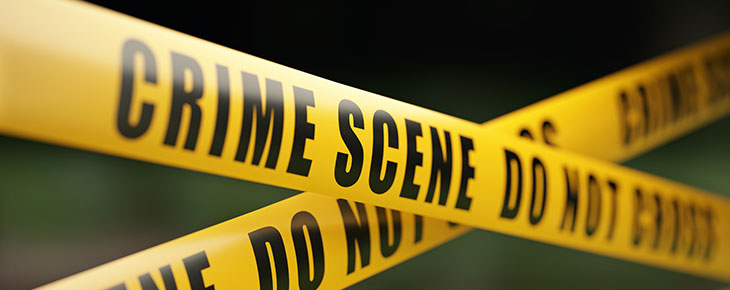
Prepare for a variety of professional roles, including corrections, offender rehabilitation, substance abuse counseling, conflict resolution, policy development, law enforcement and law.
Let's Get Started!The Bachelor of Science in Criminal Justice offers an interdisciplinary foundation within the liberal arts and sciences. This major requires a minimum of 42 credits and allows for students to choose a concentration. See the full requirements for our Criminal Justice major in our Official Catalog.
This course will provide a practical understanding and general overview of the American criminal justice system. Students will be introduced to the major law enforcement agencies and their history, including the organization and function of the police, prosecution, corrections, and court systems.
Prerequisite: SOC 101
This course will focus on the principles and concepts of criminal behavior including criminological theories and typologies, the nature, distribution and extent of crime, and the legal and societal reactions to crime. The objectives of the course are to develop the ability to engage in focused, systematic thinking and written expression about criminal behavior, and to draw correlations between actual criminal activity and theoretical models.
Prerequisite: ENG 101
This course will focus on a thorough and critical examination of meanings, history, correlations, and consequences of serious forms of social inequalities and arbitrarily assigned privileges, particularly based on social class and race/ethnicity in the American criminal justice system from a criminological perspective. Implications will be made for inequalities based on gender biases as well.
Prerequisites: CRJ 215, ENG 101, & ENG 102
This course will focus on the basic ethical concepts and issues that arise in various aspects of the field. Students will explore and form an understanding of the concepts of morality, fairness, equity, and justice as they relate to policing, the courts, punishment, and policy making. Through the use of case studies, current events, and discussion, students will be able to develop a familiarity with the cause and effect of ethical decision making.
Prerequisites: CRJ 101, ENG 101, & ENG 102
This course will focus on the application of mathematics to today’s world. Topics include street networks, producing and describing data, number and bar codes, weighted voting and apportionment, social choices and linear programming applications.
Recommended Prerequisite(s): High school Algebra (2 years) or MAT 100 (may be taken concurrently)
This course will focus on an overview of the general concepts associated with descriptive and inferential statistics in psychology. There will be an examination of the purpose behind the use of statistics in psychology and an investigation of the process undertaken to derive these statistics. Students will apply these principles by conducting a variety of statistical analyses.
Prerequisites: ENG 101, and PSY 101 or SOC 101
This course will focus on a general overview of the Constitution, with a special focus on certain Amendments that have a profound effect on current day America. This will include the First Amendment's protection of free speech, religion and press, the Fifth Amendment's Due Process Clause, the Sixth Amendment's Rights of the Accused, and the Eighth Amendment's cruel and unusual punishment provision.
Prerequisites: ENG 101, ENG 102
This course will focus on an introduction to psychology across a variety of sub-disciplines, including clinical, neuropsychological, developmental, cognitive, biological, and experimental. The course will focus on how psychology began with a philosophical perspective and how it has developed into a multidisciplinary science.
This course will focus on the fundamental principles of behavioral science research. There will be an overview of the conceptual need for research and an analysis of the methods or designs commonly employed, as well as the procedures utilized to collect and analyze data. Students will review and design research in their areas of interest.
Prerequisites: ENG 101, ENG 102, MAT 105, & an introductory Behavioral Science course.
Students enrolled in the Criminal Justice Major choose one of these Concentrations (15 credits).
General Criminal Justice
- CRJ 210: Forensic Science
- CRJ 360: Homeland Security and Criminal Justice
- PLG 211: Criminal Law
- PSY 333: Social Psychology and Deviance
- PSY 336: Abnormal Psychology
- SOC 320: Urban Youth in American Society
- SOC 449: Social Problems: Impact on Workplace
Victim Advocacy
- CRJ 340: Domestic & Sexual Violence
- CRJ 355: Mental Health/Substance Abuse in Criminal Justice
- CRJ 335: Victimology
- CRJ 405: Victim’s Rights and Services
- One additional 3-credit elective in Criminal Justice
Student Learning Outcomes
Students who graduate with a major in Criminal Justice will be able to:
- Explain the scope and nature of the three major components of the criminal justice system: police, courts, and corrections.
- Apply the theoretical models that attempt to explain the causes of crime.
- Explain how the fair and just operation of the criminal justice system is dependent upon the ethical and professional behavior of those working in the criminal justice system.
- Apply research and statistics to the analysis of data.
- Communicate effectively.
Additional Earnings
Bachelor’s degree holders make $1 million more on average over their lifetime compared to their peers who have only a high school degree.*
Opportunity
Employees with a bachelor’s degree now make up 57 percent of total wages earned. **
More Jobs
99 percent of jobs created since the recession (December 2007 - June 2009) went to individuals with at least some postsecondary education.**
*** Broken a:238430 www: CTA Undergrad - Request Info and Contact Info - BS4 ***
Why Charter Oak State College?
- 100% online
- Credit for credentials
- Six (6) start dates
- Expert Faculty
